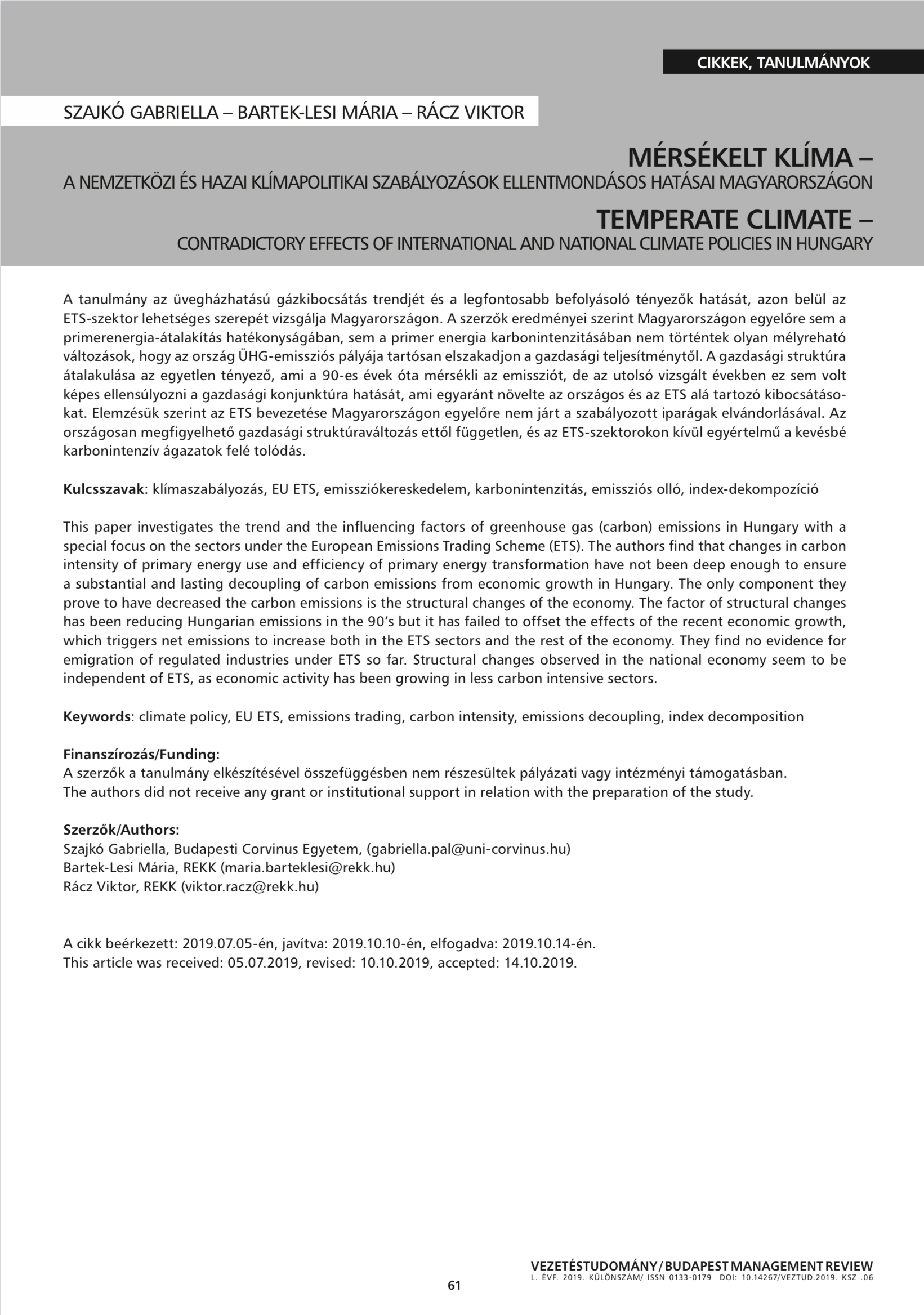Mérsékelt klíma
A nemzetközi és hazai klímapolitikai szabályozások ellentmondásos hatásai Magyarországon
DOI:
https://doi.org/10.14267/VEZTUD.2019.KSZ.06Keywords:
climate policy, EU ETS, emissions trading, carbon intensity, emissions decoupling, index decompositionAbstract
This paper investigates the trend and the influencing factors of greenhouse gas (carbon) emissions in Hungary with a special focus on the sectors under the European Emissions Trading Scheme (ETS). The authors find that changes in carbon intensity of primary energy use and efficiency of primary energy transformation have not been deep enough to ensure a substantial and lasting decoupling of carbon emissions from economic growth in Hungary. The only component they prove to have decreased the carbon emissions is the structural changes of the economy. The factor of structural changes has been reducing Hungarian emissions in the 90’s but it has failed to offset the effects of the recent economic growth, which triggers net emissions to increase both in the ETS sectors and the rest of the economy. They find no evidence for emigration of regulated industries under ETS so far. Structural changes observed in the national economy seem to be independent of ETS, as economic activity has been growing in less carbon intensive sectors.
Downloads

Downloads
Published
How to Cite
Issue
Section
License
Authors assign copyright to Vezetéstudomány / Budapest Management Review. Authors are responsible for permission to reproduce copyright material from other sources.
